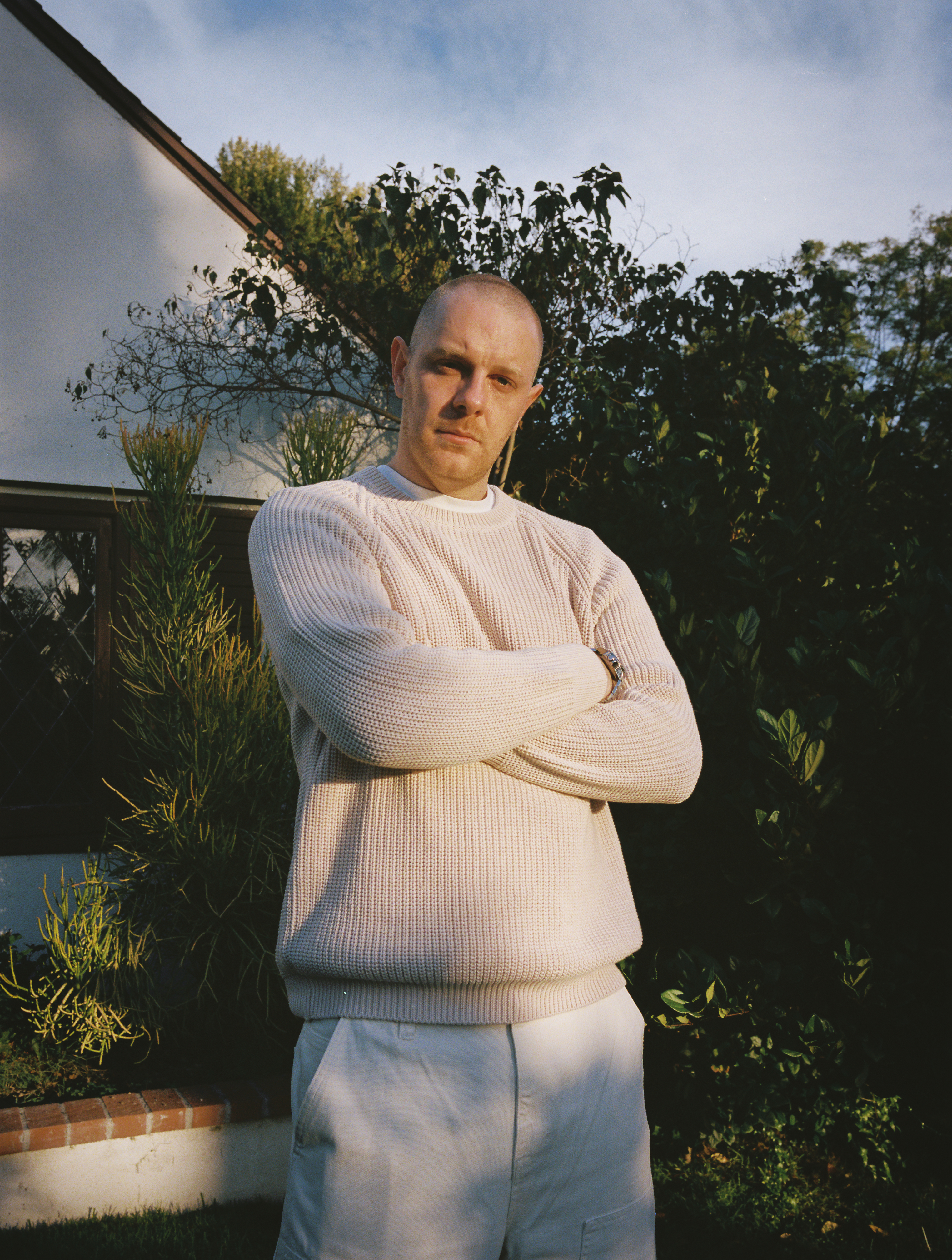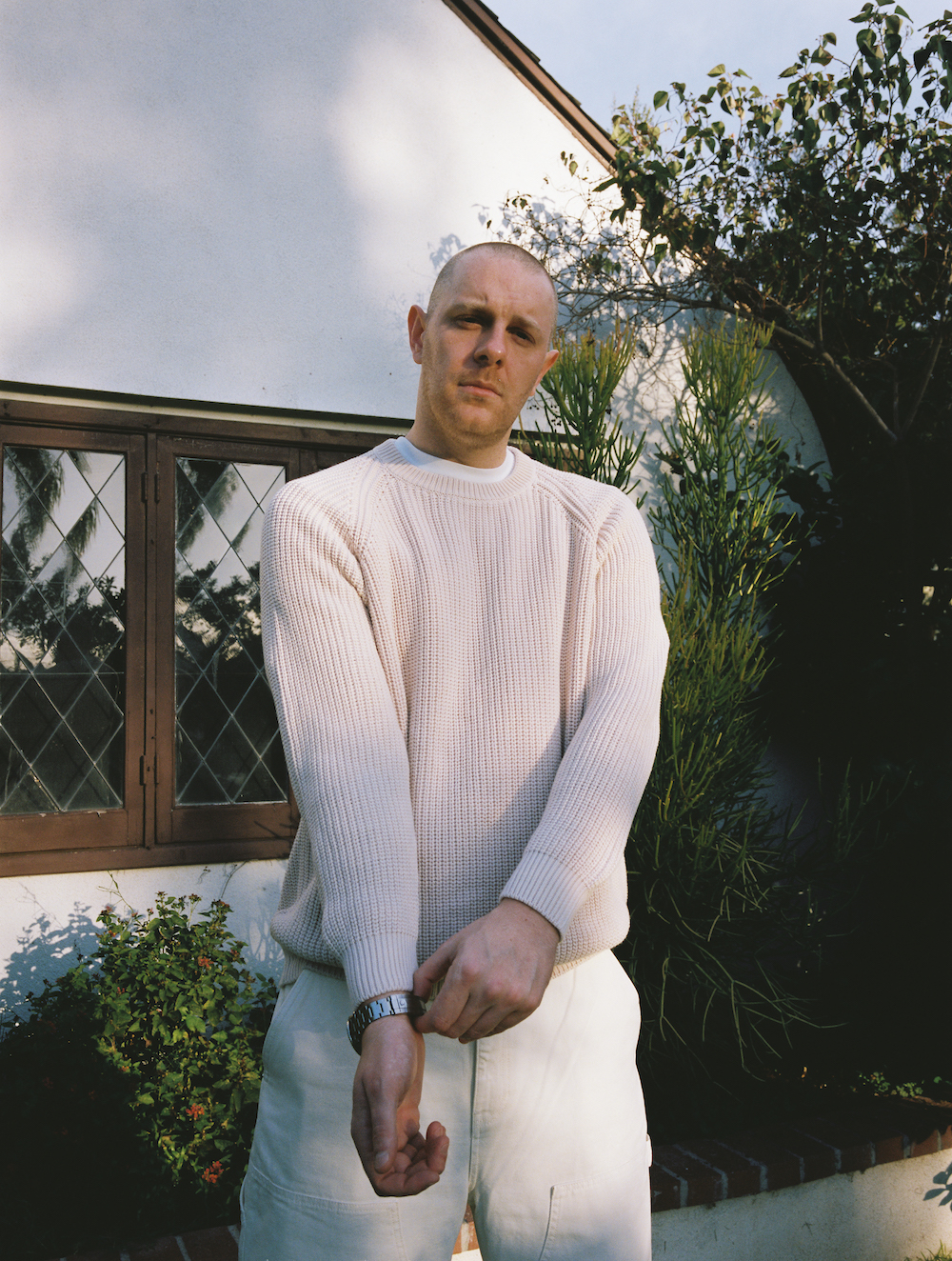Kenny Beats’ LOUIE opens with ‘Leonard’, a conversation between him and his father. They’re discussing the origin of the producer’s nickname that this debut album is named after, delving into the origins and reminiscing on how the moniker stuck. Dusty keys build as the dialogue flows, enhancing the emotions as we hearken to this father-son dynamic. As it leads into ‘Parenthesis’, the conversation fades out, and Kenny’s curation of heartfelt sonic soliloquies begins.
Words become scarce across the journey of this record, making their presence known through brief guest appearances, samples, and spoken snippets. It contrasts the Kenny we’ve come to know via his Youtube show, The Cave, or on his Twitch streams, where he’s cracking jokes or discussing the ins and outs of the music business with his ever-growing community. Instead, he approached this project over 30 days, inviting in close collaborators who were unaware of the album they were working on, whilst also taking a break from his social media. His goal was to craft something to play for his father, who has been battling the effects of cancer, as a gift. Spending every day over December dedicated to this quest, Kenny began to navigate the tumultuous terrain of family ties, finding acceptance in adversity, and the beauty of the imperfections along the way.
Every lingual memento or easter egg that Kenny incorporates on Louie blends into the beats, allowing the plucking of guitar strings, playing of piano chords, and the snapping of snares to speak a universal language we can all apply to the time capsule we’re all filling as we make our way through life. “I realised that if I told my whole story, it wouldn’t leave room for someone to relate it to their own experiences,” Kenny tells me over Zoom, detailing the process of this becoming a personal project, to something he presents to the world. He’s situated in his home studio that Twitch fans will instantly recognise, and where much of the sonic smorgasbords, lavish live instrumentation and sincere songwriting for LOUIE came to life. To learn more, Kenny and I took a deep dive into the rocky roads of family relationships, media literacy, the magic of human errors, and how this album is a companion, rather than a distraction.
Congratulations on LOUIE, my friend. How have you felt about the reception so far?
Thank you so much. It's been really eye-opening, especially as someone who has been working with artists nonstop for over 10 years. This is my first work as the sole artist, and it’s something so personal to me. Having a warm reception and just any reception, in general, is crazy because I made this album for my dad. It’s helped me get a better understanding of how I work with artists, and how I help them make music that tells their personal stories. It all feels very different than I thought it would, and I never thought I would do it.
I often feel like I’m bad at putting myself out there in life, but good at encouraging others to do it; I can only imagine it’s the same for a producer, who more than often remains behind the scenes. What’s the feeling of being the sole focus like?
I feel very grateful to have had the team around me who have helped build these digital communities throughout places like Twitch and Youtube, where I now have a fanbase to drop a project for. It feels great not only to have people say that they love the album or are taking something away from it, but also to have something to give to the people who have supported me for so long, whether it’s through watching The Cave, experiencing the music I make with others, or tuning into the Twitch streams. I never really realised how many people wanted to hear what music solely coming from me would sound like. I’ll probably get torn down on the second album; my friends have been telling me that [Laughs]. But for the debut, everybody has been very nice.
When releasing a project, is there a sense of trust you need to instil in your fanbase?
Media literacy is at an all-time low. I think the understanding of an artist’s intentions with a project or the context that leads them there is the lowest it’s ever been, because of how much people are expected to read and watch any given week. As of 2022, there are 100,000 songs uploaded to Spotify every single day. For someone to listen to every album and understand is pretty much impossible. So now, every album reviewed or commented on is either a 10 out of 10 or the worst thing they’ve ever heard. Trying to have nuance or provide easter eggs for people to discover on an album in 2022 means that a lot of the time you have to go beyond the music. That could mean putting out different visuals, hosting events, or talking to your fans on whatever social media platform you use. You see someone like Tyler, The Creator drop 8-10 videos and perform to a level that matches his content, rolling it out and talking about it for the whole year. When you give people enough time and content, you can help them understand your intent with the music without having to spell it out directly. I’m someone who talks about the music industry a lot with my fans, but as an artist, I didn’t want to try and dictate or tell them how they should feel listening to this record. So I tried to cut back on social media and release a high volume of different videos, really trying to focus on what this project is about and who it’s for. If an artist is putting out music in 2022, I think you need to give people more than the album artwork, one video, and one interview to guide them into understanding.
It also seems that when creating a close-to-home project like this, you need to understand what you want to say. When dealing with the emotions attached to this body of work, did you ever question the utility of this art, and what it serves?
I think I’ve always questioned if I had a good enough idea to do my own record, and I think that’s why it took this long. To make LOUIE, I had to take time away from all the other artists I was working with and the projects I was working on. So if I’m taking time away from working with the geniuses I feel blessed to work with, this art better have utility. The thing about this project is I had the idea for it after my father got sick, and I wanted to make it for him as kind of a gift. During this, it made me realise that every time I heard a love song pose a question like “Do you still think of me?” I would think about my dad. I was never thinking about a romantic relationship in my life, I was thinking about my parents. And it’s not a record about how much I love my parents either, because I’ve had some hard times with my dad, besides him being sick. We’ve had a lot of hard years in the past where we wouldn’t talk to each other and it was very estranged. I started realising the utility of my record was to flip what you’re thinking about when you’re listening to it, because “Do you still think of me?” is a completely different question when it’s about your parents; it hits in a completely different way. I think this is what kept me working on it during that time, and what prevented me from working on it before because I didn’t have that internal compass pointing me in this direction.
I love how you convey this message throughout the album without relying on in-your-face lyrical themes. Do you think when it comes to the rough terrain of a family relationship, some things are just better left unsaid?
Definitely. Especially when it comes to art and making stuff about specific feelings or situations. I think once it leaves the studio, it becomes the world’s, and I love when people remind you of what you’ve made. It’s the first music I’ve ever made for myself, but I’ve seen it relate to people and their family situations in ways I could never understand, just based on the little tidbits I give throughout this album. You get bits of my dad and me talking and you get some personal moments, but I hope it’s open-ended enough to where you can think about your situation, and not be obstructed by the Kenny Blume story 100% of the time. Louie is just my nickname, and I hope the people listening think about the people who gave them theirs.
I think that’s one of the beautiful things about instrumental music because it serves as a universal language.
That’s something I’ve been able to see for the first time, and it has inspired me to make more music from that place. The hard part is finding something you want to talk about that means something to you, but when you find it, the rest is super easy. The creative process was so simple because I knew what I wanted to say. It’s kind of like when you go to therapy, and you wonder why certain things are happening with certain people in your life. You think back to that one thing from your childhood that you’ve thought about a million times, and you make that connection, realising that particular moment is why you’re having issues with trust, or struggling with what you’re currently going through. It’s often not obvious at first, but when you think about what you’re trying to make and what you want to say, it’s usually right in front of your face. That’s a muscle I’m trying to flex more often.





